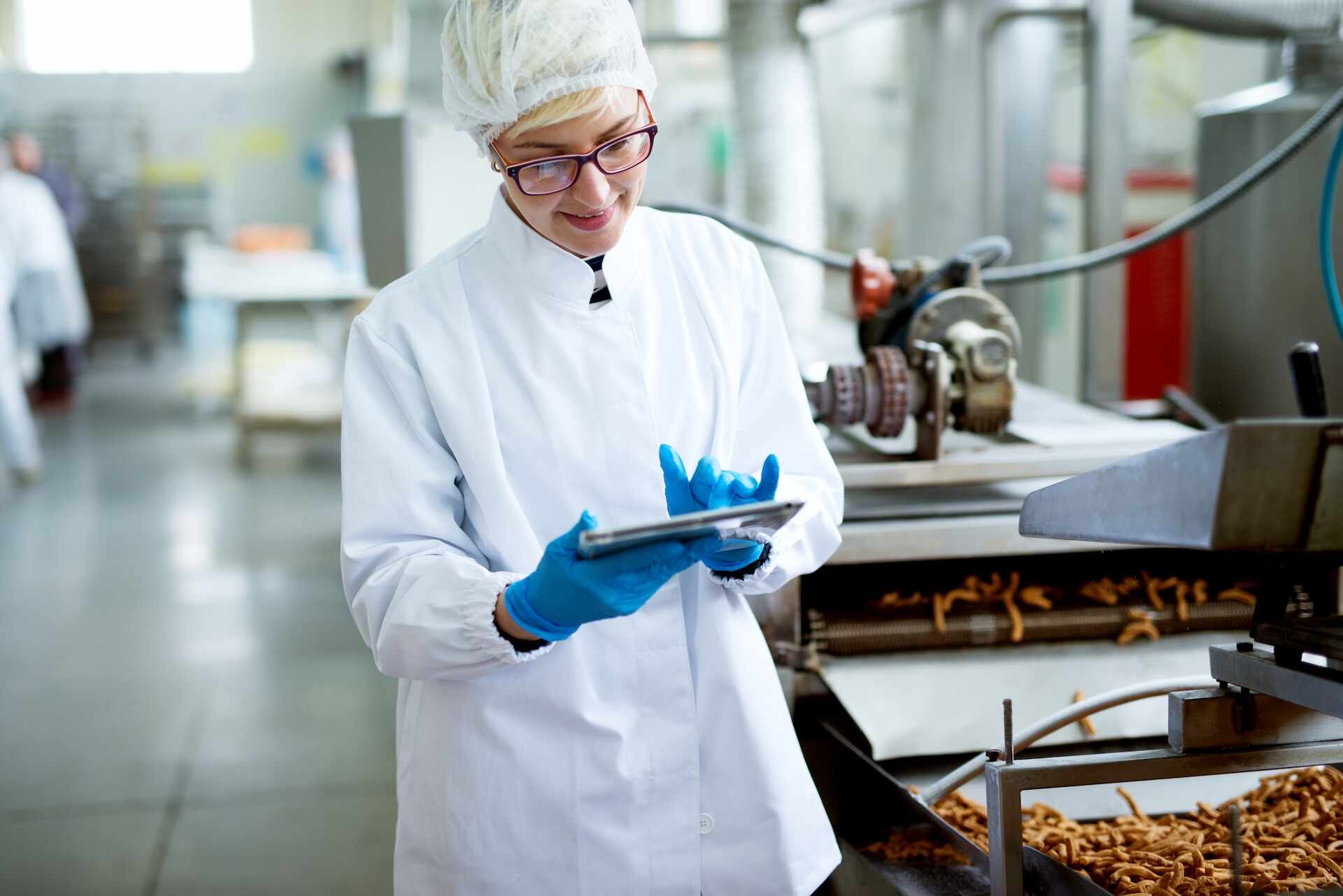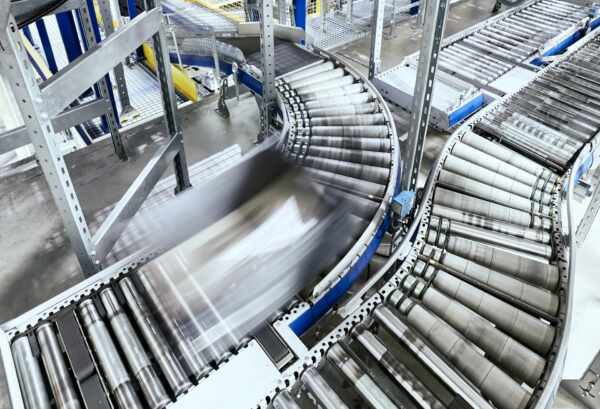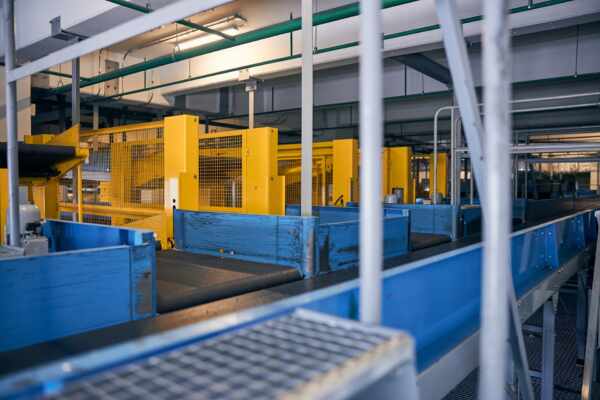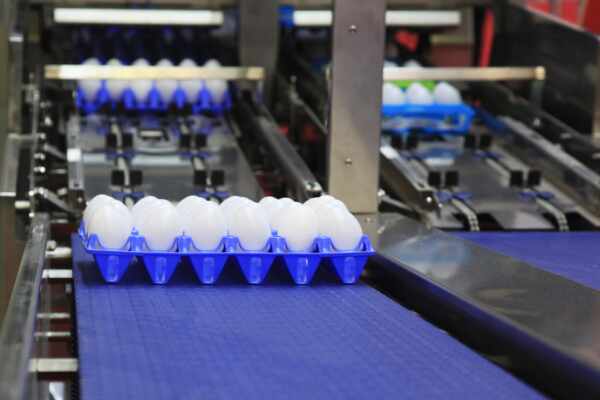In food manufacturing, it is of utmost importance to maintain a hygienic and efficient production line that caters to stringent safety regulations. Conveyor belts play a crucial part in this, as they are responsible for transporting products through various stages of processing. Today, stainless steel conveyor belts are becoming the preferred choice in the food manufacturing industry. These belts offer a myriad of advantages due to their unique properties and unparalleled functionality.
In this comprehensive guide, we will explore the role of stainless steel conveyor belts in food manufacturing and discuss the key reasons behind their increasing popularity. From resistance to corrosion, easy cleaning, and low contamination risks to durability and a wide range of applications, stainless steel conveyor belts prove to significantly enhance the quality, safety, and efficiency of food production lines.
The Role of Stainless Steel Conveyor Belts in Food Manufacturing
Corrosion Resistance
One of the most significant benefits of stainless steel conveyor belts in food manufacturing is their high resistance to corrosion. This property is essential in environments where the belts are exposed to moisture, chemicals, and other potentially corrosive substances that are common in food processing. To better understand this, let’s break down the factors contributing to stainless steel’s corrosion resistance:
1. Chromium Content: The addition of chromium to stainless steel ensures the formation of a passive oxide layer on the surface, which protects the underlying material from corrosion.
2. Proper Stainless Steel Grades: Selecting the appropriate grade of stainless steel, such as AISI 304 or 316, can provide enhanced corrosion resistance in specific environments, making them suitable for various food processing applications.
3. Smooth Surfaces: Smooth and polished stainless steel surfaces further contribute to corrosion resistance by preventing the build-up of deposits, which could promote localised corrosion.
Ease of Cleaning and Low Contamination Risk
Hygiene is a top priority in food manufacturing, and stainless steel conveyor belts excel in this regard. Their smooth surfaces enable easy cleaning and sanitisation, ensuring optimal hygiene standards throughout the production process. By reducing the risk of microbial contamination, stainless steel conveyor belts contribute to maintaining food safety and preventing product recalls.
Durability and Long Service Life
Stainless steel is known for its high strength and durability, which makes these conveyor belts an excellent choice for food manufacturing. The natural strength of stainless steel allows the belts to sustain heavy loads, withstand impact, and resist wear and tear over time. As a result, they offer a long service life and reduce the frequency of belt replacement, leading to reduced maintenance costs and minimal disruptions to production.
Wide Range of Applications
The versatility of stainless steel conveyor belts makes them suitable for a wide range of applications in the food manufacturing industry. Some examples include:
1. Baking and Oven Belts: Stainless steel conveyor belts can withstand high temperatures and are suitable for baking operations, ensuring that products move smoothly through the process without sticking to the belt or getting damaged.
2. Cooling and Freezing Belts: The thermal stability of stainless steel makes it ideal for cooling and freezing applications, where rapid temperature changes can cause other materials to become brittle or deformed.
3. Meat and Poultry Processing: Stainless steel conveyor belts resist chemical reactions and can sustain the impact and abrasion caused during meat and poultry processing, ensuring a hygienic and efficient operation.
4. Confectionery and Bakery: The non-stick properties and ease of cleaning make stainless steel belts ideal for handling sticky or oily products, such as chocolate or pastries, without compromising product quality or production efficiency.
Considerations for Implementing Stainless Steel Conveyor Belts
While stainless steel conveyor belts offer numerous advantages in food manufacturing, there are certain factors that companies should consider before implementation:
1. Selecting the Appropriate Grade: It’s crucial to choose the right grade of stainless steel for your specific application. Grades such as AISI 304 and 316 are commonly used in the food industry due to their excellent corrosion resistance and durability. Consult with a conveyor belt specialist, like Change Parts Pty Ltd, to determine the most suitable grade for your application.
2. Compatibility with Existing Equipment: Ensure that your stainless steel conveyor belt is compatible with your existing food processing equipment, including proper integration with sensors, drives, and other systems.
3. Proper Installation and Maintenance: To maximise the benefits of stainless steel conveyor belts, it is essential to follow recommended installation and maintenance procedures. This includes securing belts correctly, aligning equipment, and conducting regular inspections and cleaning.
Conclusion
Stainless steel conveyor belts are playing an increasingly essential role in food manufacturing, offering superior corrosion resistance, easy cleaning, durability, and versatility. By implementing stainless steel conveyor belt systems, food manufacturers can create a more efficient, hygienic, and safe production environment. To ensure the success of your stainless steel conveyor belt implementation, partner with a trusted conveyor belt solution provider like Change Parts Pty Ltd. Their tailored solutions, exceptional products, and comprehensive support can help you enhance the safety and efficiency of your food manufacturing operation.
Partner with Change Parts Pty Ltd for industry-leading stainless steel conveyor belt solutions and expert advice, tailored to your food manufacturing needs. Contact our team today to learn more about our high-quality stainless steel conveyor belts and comprehensive support that can help your food manufacturing operations thrive.




